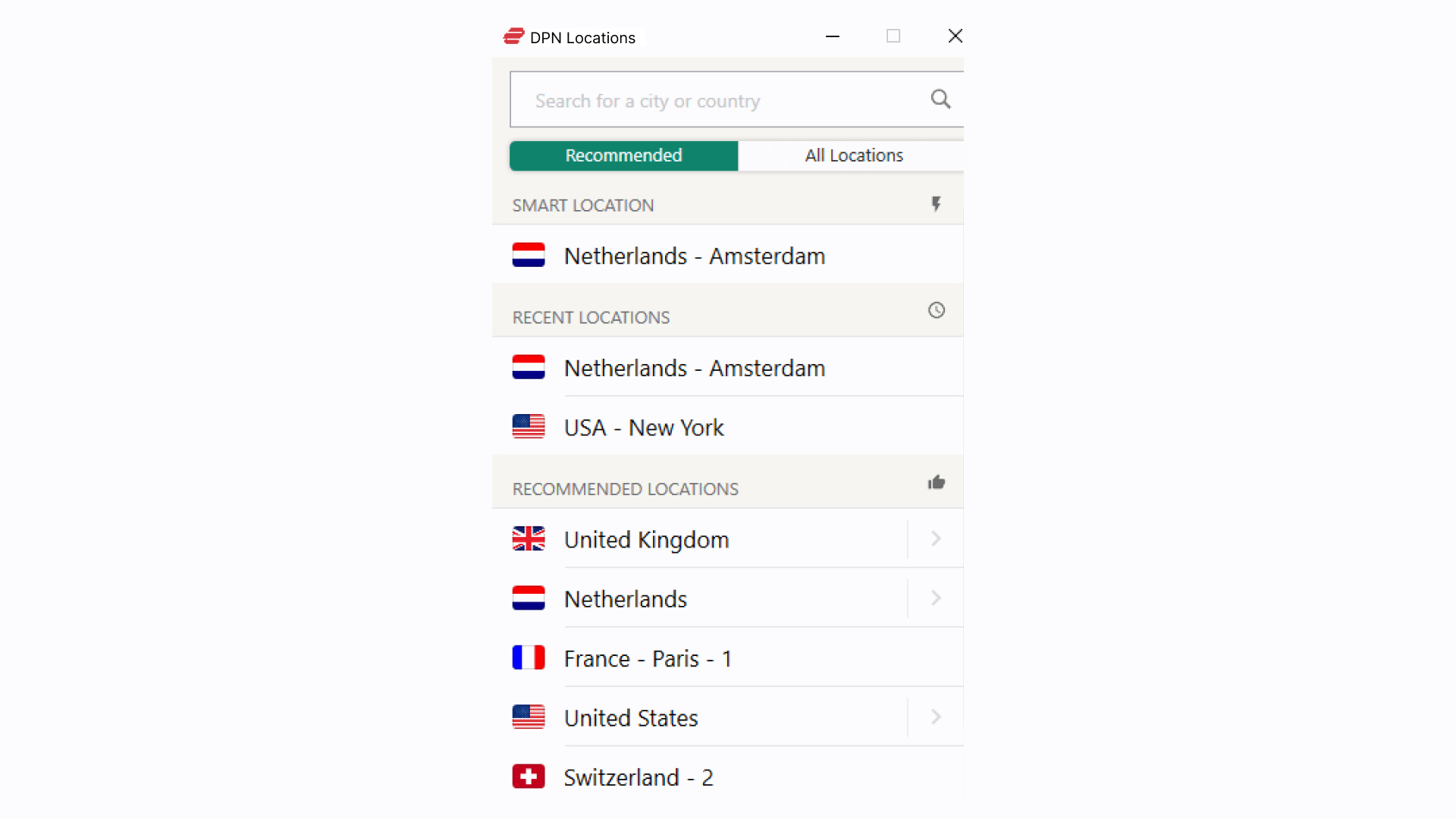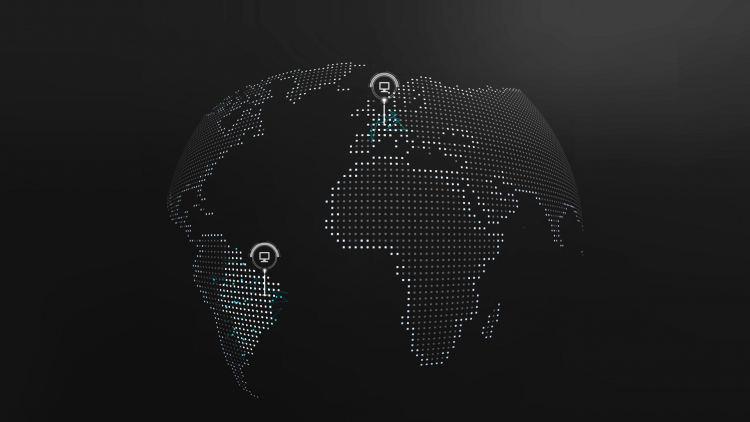It’s September 2024, and there is a resurgence of online censorship from all corners of the globe. Telegram founder Pavel Durov is being detained in France for suspicious reasons. Brazil banned its citizens from using X. And numerous high-profile politicians — from Europe to Australia to the USA — are threatening Elon Musk due to his focus on freedom of speech in moderating X content.
With online privacy under attack, millions are turning to VPNs to maintain online anonymity. But can they be trusted? Some say that a new type of VPN is the answer.
Decentralized VPNs are privacy focused
A decentralized VPN (DPN) is a VPN that is not centrally controlled by a single company or entity. DPNs (also acronymized as dVPNs) are bringing you many of the same features that VPNs offer — and a whole lot more through the use of blockchain.
Sometimes referred to as crypto VPNs, DPNs are another example of blockchain solving real-world problems with a new take on providing online privacy. The benefits of DPNs include better online privacy, less censorship, and the ability to access content that is blocked in your country or jurisdiction.
Decentralized VPNs bring privacy and trustlessness to the VPN ecosystem. You need not trust a DPN to handle your data with caution; thanks to a DPN’s serverless design, your data cannot be stored by default. Investors, startups, and entrepreneurs should strongly consider using a DPN to protect IP, business plans, and other trade secrets.
Investors should look into the tokens that back some of these decentralized private networks. The DPN sector is ripe for growth and could present some great opportunities for capital investment. Passionate entrepreneurs may find opportunities to develop products in the DPN sector.
While some centralized VPNs may offer (or claim to provide) user privacy, they are susceptible to the same issues that make centralized crypto projects more vulnerable than decentralized ones. These weak points include legal actions, physical confiscation of hardware, and other operational chokepoints.
If you live in a very repressive region, a decentralized private network may be your only hope.
As governments continue to pass legislation to ban websites, apps, and the use of VPNs themselves — DPN offerings are providing people with online lifelines to the digital information and communication abilities that they need.
Decentralized VPN options
There are numerous decentralized private networks on the market that cater to different users, various priorities, and even separate blockchains. Let’s take a quick look at some DPNs worth considering.
- Orchid VPN: Independent providers stake Orchid’s OXT token to provide bandwidth. Users pay nanopayments via a pay-as-you-go data usage model. For privacy, Orchid randomly selects a different server each time you connect to its DPN. Orchid VPN has no tracking tools, is open source, and features multi-hop routing for enhanced privacy. This allows users to circumvent firewalls and access geo-blocked content.
- Mysterium VPN: This privacy-enhanced DPN hides your IP address, physical location, and online data — by default. When using Mysterium VPN, your messages, browsing, and download histories are completely blank. In addition, their decentralized architecture makes it impossible to store data logs.
- KelVPN: Using a decentralized node model, KelVPN uses a blockchain-based system that prevents the collection and storage of data. All online content is available at good connection speeds. To access this DPN, you can use a credit/debit card or crypto to purchase a Key. This Key grants access to KelVPN for 1, 6, or 12 months.
This is just a sampling of the DPN options currently available. Many additional blockchain projects like NYM and Gnosis are developing promising decentralized private networks.
Most decentralized private networks are priced competitively compared to standard VPNs. The cost of a VPN ranges from $0–$13/month, with $6.50 being the average monthly cost. Pricing options from KelVPN and Mysterium VPN vary from $3–10, depending on the length of your DPN plan.
Over 31% of internet users (approximately 1.6 bil people) use a VPN. However, it is fair to say that only a small percentage of these VPN users choose a DPN — the exact number is difficult to estimate. Most DPNs don’t disclose their network statistics or user numbers.

Why you need a decentralized private network (DPN)
Without a VPN, you can be monitored for everything you read/watch, every website you visit, and every online purchase you make.
Even if you’re not doing anything “wrong,” knowing your online activity isn’t private can be deeply unsettling. Do I — Kade — really want the world to know how obsessed I am with crypto, how many blockchain podcasts I listen to, and how many crypto shirts fill my closet? Don’t answer that 🙃.
On a more serious note, Brazilians using a VPN to access banned content are also breaking the law. For this reason, Brazilians that choose to continue accessing X (consequences be damned) need a reliable, secure, and — most importantly — private VPN. A centralized server could be prone to hacks, downtime, or even local regulatory action.
Entire countries have firewalls that aim to prevent the free flow of online information. A famous example is the “Great Firewall of China” that bans much of the online content not produced in China. Decentralized private networks allow you to hide your physical location by selecting from numerous countries within their network.
DPNs are providing robust censorship-resistant VPN alternatives. For those who could be imprisoned for what they view, read, or share — privacy is paramount, not a “nice to have” feature.
Why free and centralized VPNs aren’t good enough
A good VPN hides your IP address (a device identifier) and encrypts all your online data. As the adage goes, “you get what you pay for” — and free VPNs are often the most costly.
Free VPNs give you a false sense of online privacy, as most have been caught leaking and sharing your data. These VPNs are centralized and vulnerable to bandwidth downtime, legal court orders, and more.
Even some of the best paid VPN options have issues. Centralized VPNs with great security can still be compromised through a hack — or tempted to sell the private data their customers’ entrusted with them.
Many recommend avoiding centralized VPNs in the “Five Eyes” countries (USA, UK, NZ, AUS, CAN) due to their mass surveillance data-sharing agreement. The UK, in particular, has legislated mandatory mass surveillance and data tracking.
Thankfully, the benefits of decentralized VPNs are reaching the masses. You can run a DPN without having to worry about its location. As its nodes are spread throughout the world, a DPN doesn’t really have a headquarters or centralized infrastructure.
Much like the Bitcoin protocol, this decentralization is a great security feature — not a vulnerability.
How DPNs work — and provide privacy
Most traditional VPNs are operated by a single — and centralized — VPN provider. However, DPNs are typically run by numerous individuals who run independent nodes that support a specific DPN.
Sometimes these individuals are volunteers. Oftentimes, those running DPN nodes are incentivized by crypto rewards. These rewards compensate the node operators and those that distribute unused network traffic to decentralized VPN users.
The primary benefits of DPNs are strongly enhanced privacy and freer internet access. On the downside, some decentralized VPNs have lower network speeds and latency issues. They can also be a little more difficult to set up for the less tech savvy.
Decentralized VPNs typically don’t store centralized data logs by design. This makes it impossible for them to share data with others — even if they wanted to, were compromised by a hostile actor, or were forced to comply with a legal ruling. For these reasons, a DPN may be an even better option for those that live in regions with strict online restrictions (and associated penalties).
Decentralized VPNs set a new standard
The distributed nature of DPNs makes them resistant to both online and offline attacks. With numerous nodes worldwide, disabling a decentralized VPN through online shenanigans is nearly impossible. They are similarly immune to physical server confiscation, lawfare, and other questionable tactics.
For entrepreneurs and companies that value privacy, decentralized private networks can be used as an additional security layer. In many regions, DPNs provide a safe way to access sites and apps that are throttled, blocked, or banned.
When used in tandem with DeSoc, DeFi, DeSci, and decentralized cloud computing, technologists bring open online communication, open ecommerce, and open online access to the entire world.
These are real-world use cases we can all get behind.



